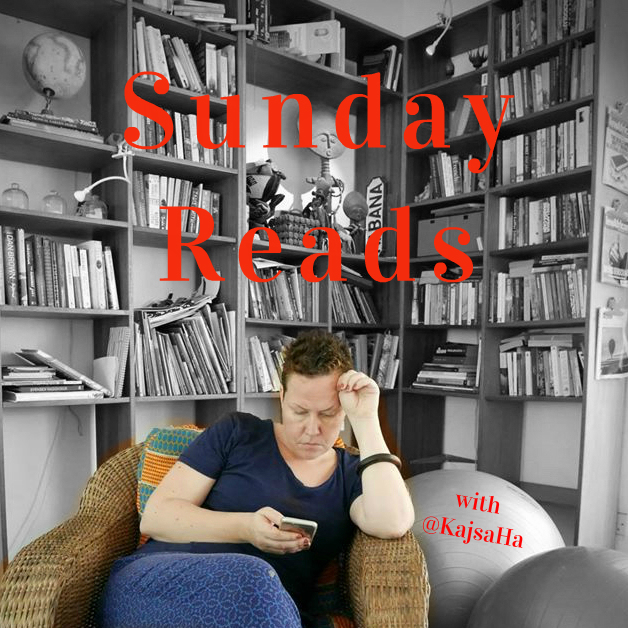
- How Ghanaian food changed my life. “I loved the fresh grilled prawns and fish. Given my familiarity with San Francisco sourdough, I quickly grew fond of the steamed fermented corn dough known as kenkey, eaten with the fiery sambal “shito” (“black pepper”) made from pounded dried shrimp, dried fish, and dried chilis. The mangos were to die for. African yams?—?boiled, mashed or fried?—?easily supplanted potatoes, and don’t even get me started on the versatile plantain. The one-pot soups and stews comforted me, and I discovered the joys of colorful chili peppers hot enough to make my nose run.”
- It’s not the religion that creates terrorists, it’s the politics. “We buy into the radicalisation hypothesis because we want evil to be mysterious and other; something that has nothing to do with us.”
- On data poverty and New York Big Data. ” The release of open data, to him, is a powerful way to give New York City residents a sense of who they are, what they’re doing and how they’re doing it, as well as the strengths of their neighborhood so that they can work together to address quality of life issues. “Neighborhoods that don’t have data, that don’t understand data about themselves as a neighborhood, then they can’t begin to suggest to their representatives on city council, state and otherwise, the things that they need to make themselves better,” Ra Mashariki said.”
- When H&M came to South Africa and insulted every one. “When fashion blogger Tlalane Letlhaku commented on Twitter saying that “most, if not all your posters in store have no black models” and to “please work on that to appeal to everyone,” the response was “H&M’s marketing has a major impact and it is essential for us to convey a positive image”.”
- For Slow Scholarship: A Feminist Politics of Resistance through Collective Action in the Neoliberal University. “Our concern involves the ever-increasing demands of academic life: the acceleration of time in which we are expected to do more and more. The “more” includes big tasks, such as teaching larger classes, competing for dwindling publicly funded grants that also bring operating money to our universities, or sitting on innumerable university administrative committees. It also includes the constant stream of smaller requests demanding timely responses, such as quarterly updates to funding agencies, annual institutional review exercises, and pressure on us as knowledge workers to stay on constant alert through the demands of social media.
Inspired by personal role models, Ory Okolloh Mwangi and Chris Blattman, I want to share articles I read with my followers on a somehow regular basis. I hope to make Sunday Reads a weekly feature to be shared here and on Twitter!
